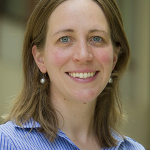UNHCR as a Surrogate State: Protracted Refugee Situations

Author: Sarah Deardoff Miller
Publisher: Haymarket Books
Year of Publication: 2018
Print Length: 190 pages
Genre: Non-Fiction / International Relations, Political Science
Topic: UNHCR, Surrogate State, Protracted Refugee Situations, Asylum & Asylum Seekers, Refugees & Forced Migration, Internally Displaced Person (IDP), Asylum & Refugee System, Refugee Management/Governance, Camps, Governance, Protection, Host Community, Local & Global, Politics & Power
International organizations (IOs) that focus on refugees are finding themselves spread increasingly thin. As the scale of displacement reaches historic levels—protracted refugee situations now average 26 years—organizations are staying for years on end, often working well beyond their original mandates. In some cases, IOs may even act as a substitute for the state. This book considers the conditions under which surrogacy occurs and what it means for the organization’s influence on the state. It looks specifically at the United Nations High Commissioner for Refugees (UNHCR) as a surrogate state in protracted refugee situations in Kenya, Tanzania, and Uganda.
Drawing on international relations literature and empirical studies of UNHCR, Miller asks how and when UNHCR takes on surrogacy, and what effect this has on its ability to influence how a host state treats refugees. The book develops a framework for understanding IOs at the domestic level and presents a counterintuitive finding: IO surrogacy actually leads to less influence on the state. In other words, where UNHCR behaves like a state, it is less able to influence a host state’s refugee policies.
UNHCR provides an excellent example of an IO working on multiple levels, making this book of great interest to practitioners and policymakers working on refugee-related issues, and scholars of forced migration, international relations, international organizations, and UNHCR.
Table of Contents
List of illustrations
Acknowledgments
Abbreviations
Introduction
1. The framework
2. Applying the framework to UNHCR
3. Kenya
4. Tanzania
5. Uganda
6. Conclusions
Index

Sarah Deardorff Miller is Adjunct Assistant Professor of International and Public Affairs at the Columbia University School of International and Public Affairs (SIPA) where she is leading the Capstone Mercy Corps project, which focuses on refugee youth. She focuses on the politics of forced migration, having received her doctorate in International Relations from Oxford University. Her research focused on the role of the United Nations High Commissioner for Refugees in protracted refugee situations. She has worked on refugee issues with various non-profit organizations around the world, including Tanganyika Christian Refugee Service in Tanzania, the World Council of Churches in Switzerland, and World Relief in the United States. She has also carried out research or consulting projects in Thailand, Jordan, Lebanon, Syria, Nepal, Kenya and Uganda. She recently released a book on Syrian displacement, entitled, Political and Humanitarian Responses to Syrian Displacement (Routledge 2016). She has also helped with displacement-related projects at USAID and the Department of State as a Franklin Fellow, and consulted with think tanks like the Brookings Institution.
Source: https://mobilityconvention.columbia.edu/sarah-deardorff-miller
More from Sarah Deardorff Miller in this library, click here.
